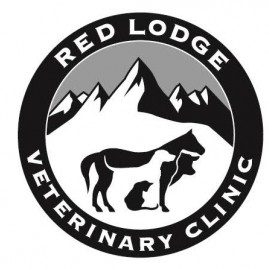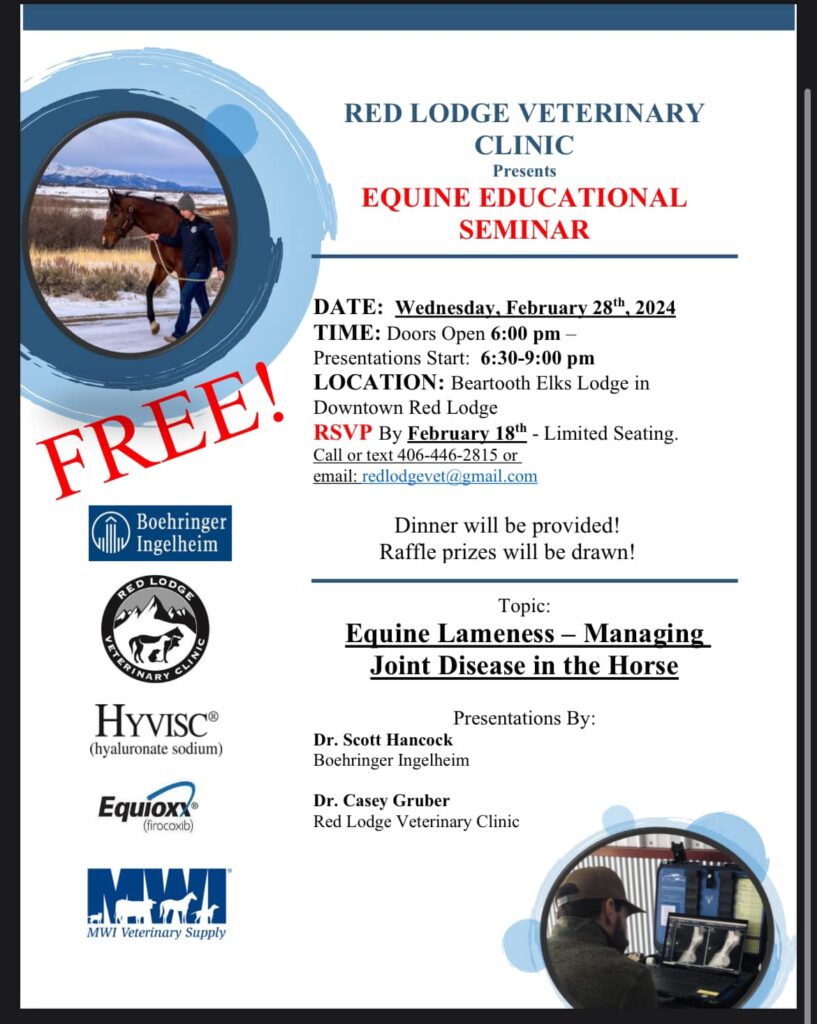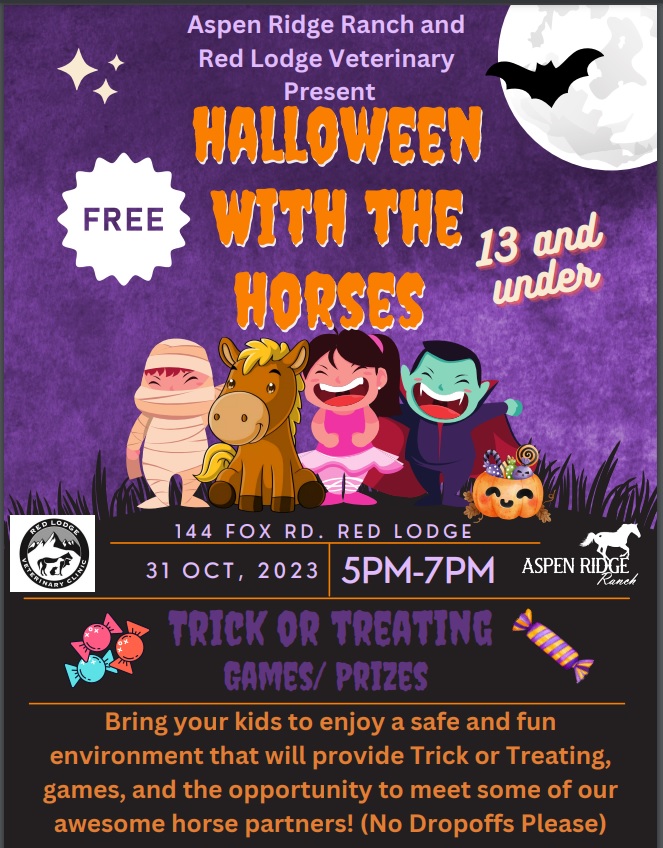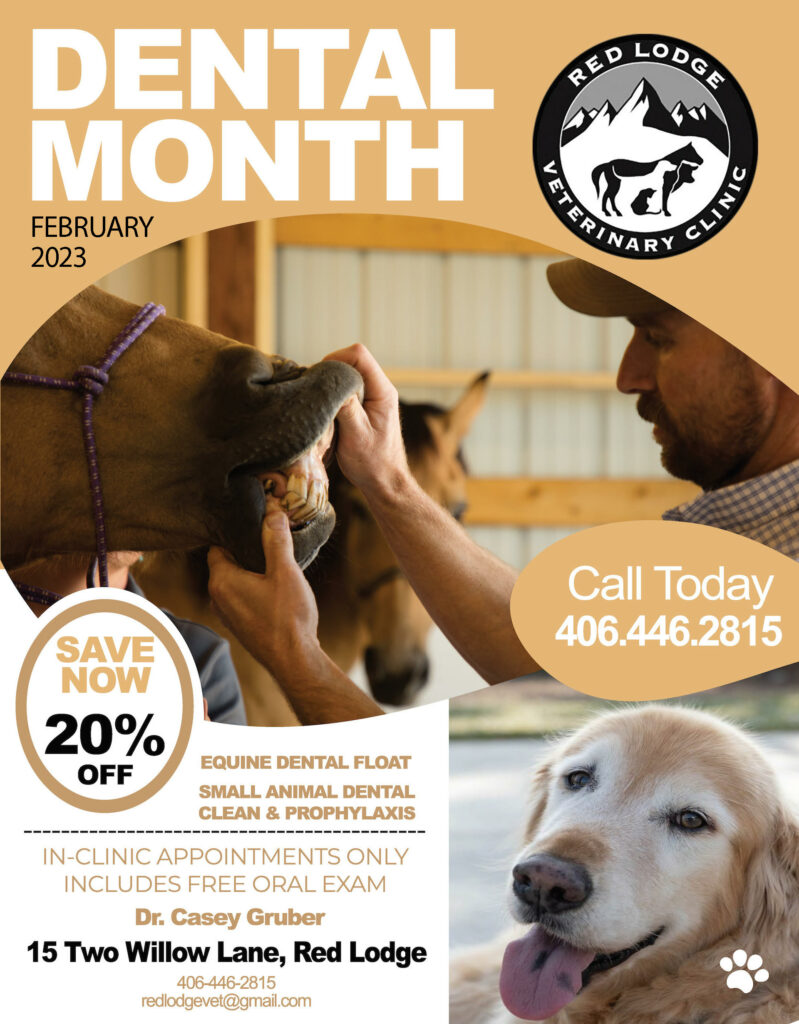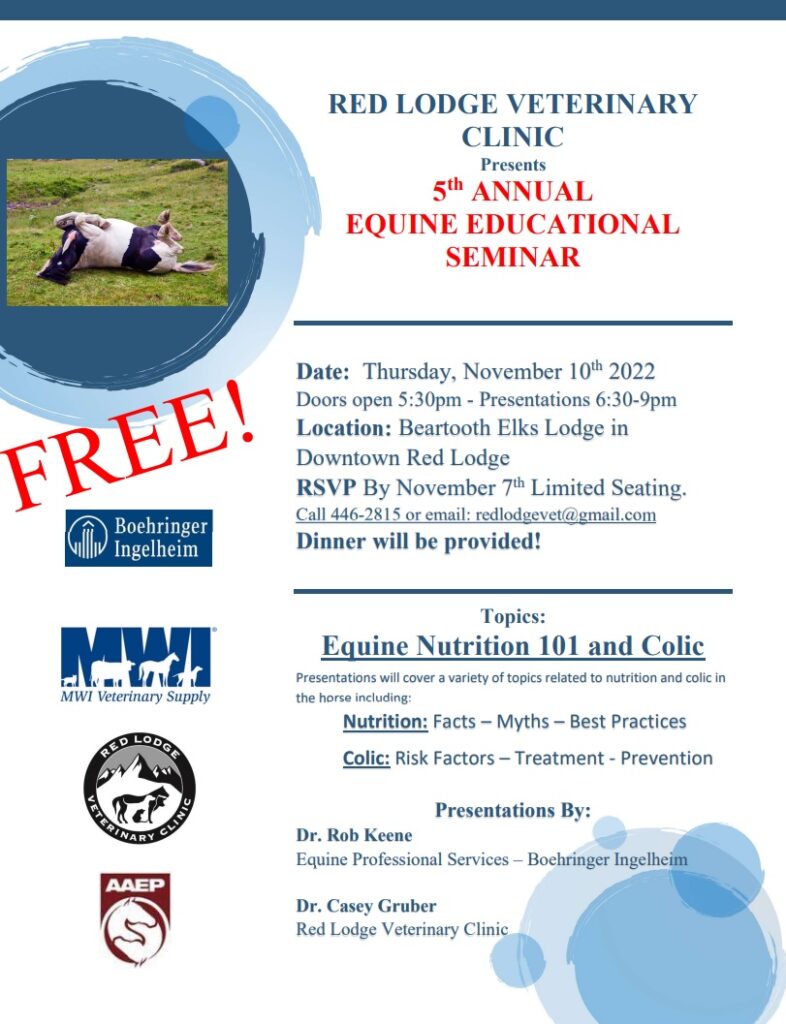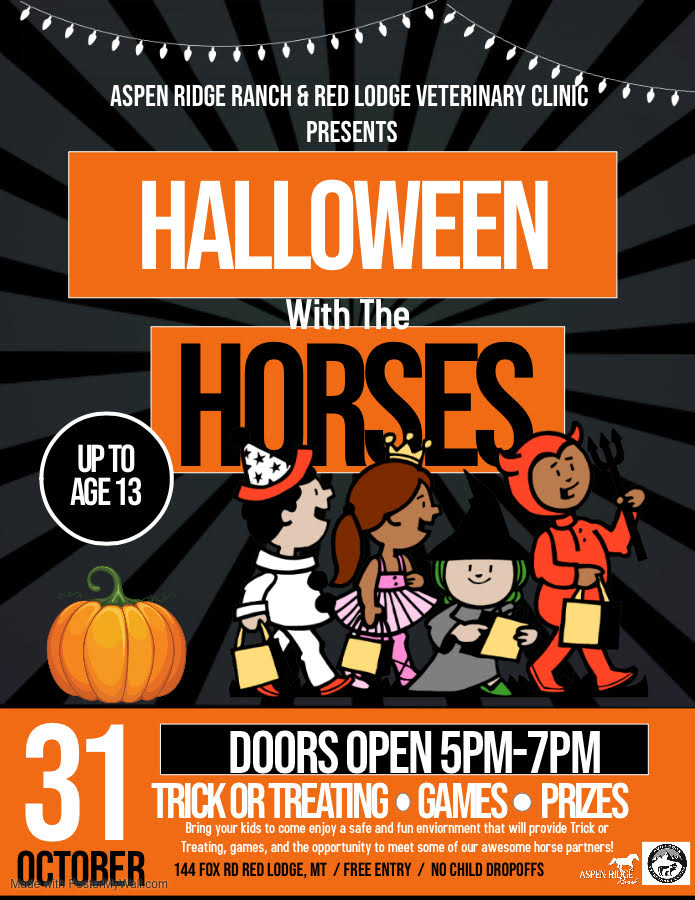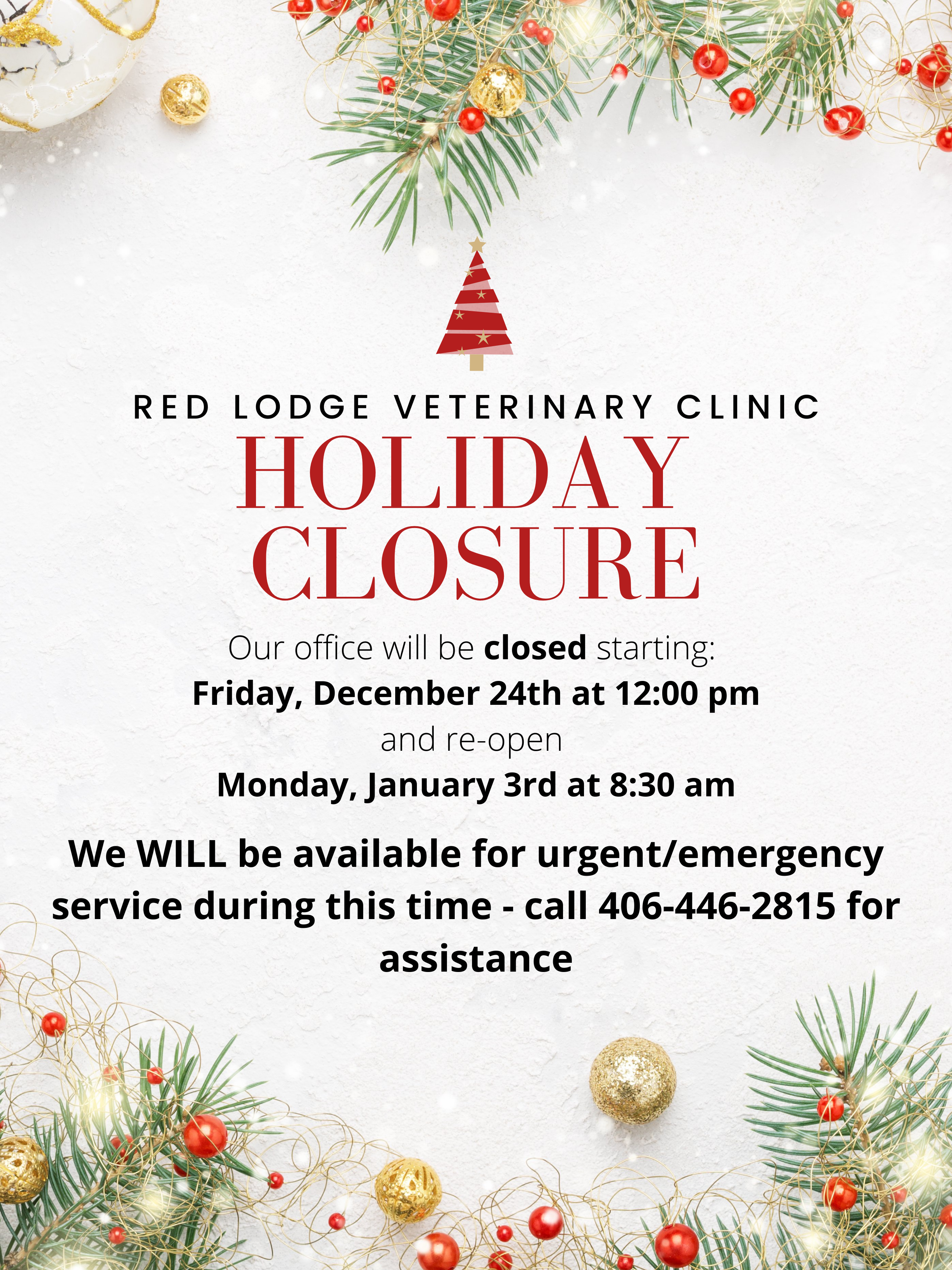In February we will once again be offering a 20% discount on equine dental floats and small animal dental cleanings. In-clinic appointments only. Call us today 446-2815 to reserve your spot, we fill up quickly!
EQUINE DENTAL HEALTH:
Horses with dental problems may show obvious signs, such as pain or irritation, or they may show no noticeable signs at all. This is because some horses simply adapt to their discomfort.
For this reason, periodic dental examinations performed by your equine veterinarian are essential to your horse’s health. It is important to catch dental problems early. If a horse starts behaving abnormally, dental problems should be considered as a potential cause. Waiting too long may increase the difficulty of remedying certain conditions or may even make remedy impossible.
Look for the following indicators of dental problems from the American Association of Equine Practitioners (AAEP) to know when to seek veterinary attention for your horse:
- Loss of feed from mouth while eating, difficulty with chewing, or excessive salivation.
- Loss of body condition.
- Large or undigested feed particles (long stems or whole grain) in manure.
- Head tilting or tossing, bit chewing, tongue lolling, fighting the bit, or resisting bridling.
- Poor performance, such as lugging on the bridle, failing to turn or stop, even bucking.
- Foul odor from mouth or nostrils, or traces of blood from the mouth.
- Nasal discharge or swelling of the face, jaw or mouth tissues.
Oral exams should be an essential part of an annual physical examination by your veterinarian. Every dental exam provides the opportunity to perform routine preventative dental maintenance. Mature horses should get a thorough dental exam at least once a year, and horses 2 –5 years old should be examined twice yearly.
Call us today! 406-446-2815
** Discount does not apply to sedation or other recommended services beyond the dental float, in-clinic appointments only and no rainchecks **
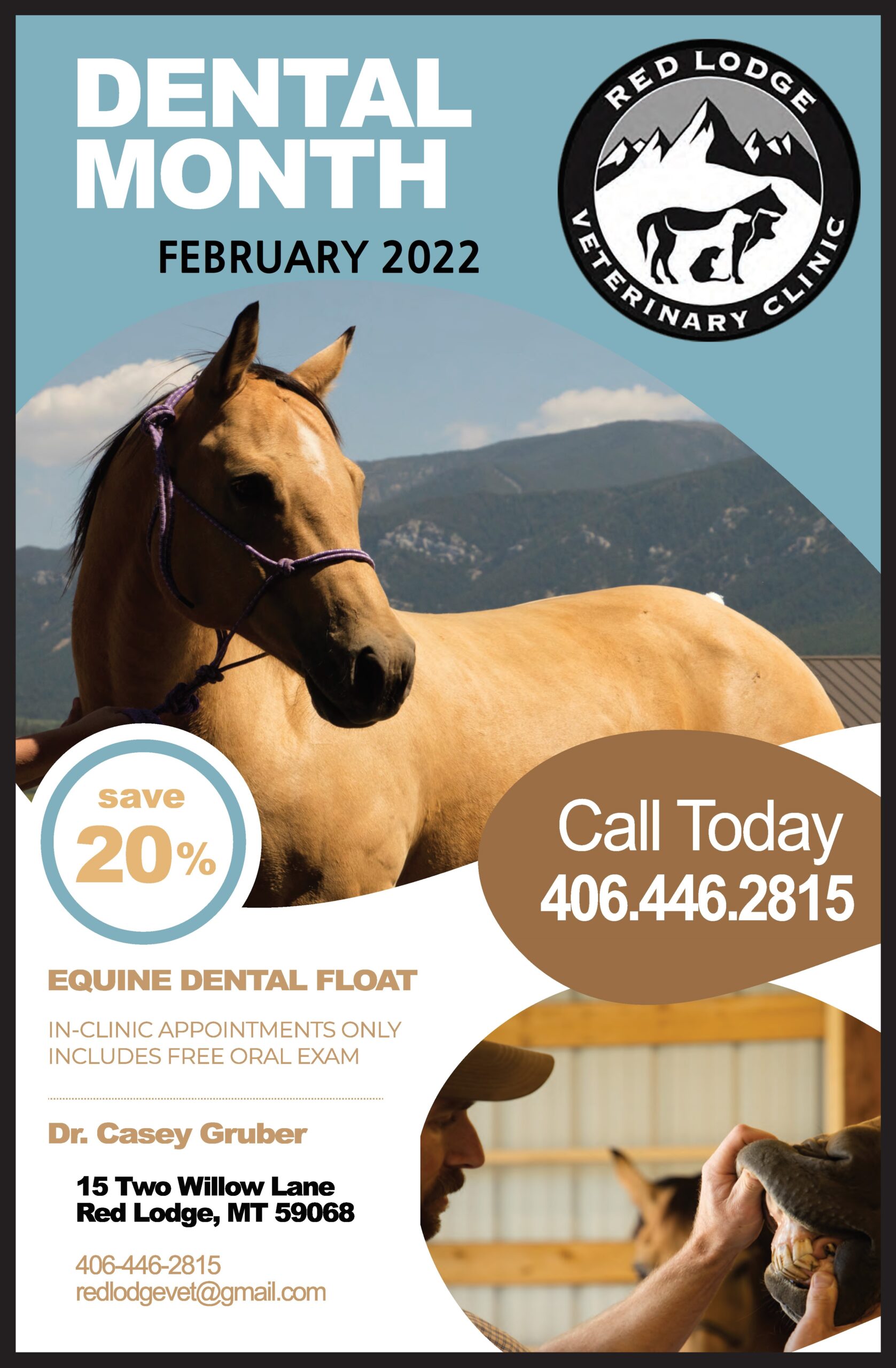
CANINE and FELINE DENTAL HEALTH:
The cause of gum disease is the same in cats and dogs as it is in people.
Gum disease is an infection resulting from build-up of soft dental plaque on the surfaces of the teeth around the gums. The bacteria in dental plaque irritate the gum tissue if plaque is allowed to accumulate, which often leads to infection in the bone surrounding the teeth. Hard dental tartar (calculus) consists of calcium salts from saliva deposited on plaque. Tartar starts to form within a few days on a tooth surface that is not kept clean, and provides a rough surface that enhances further plaque accumulation. Once it has begun to grow in thickness, tartar is difficult to remove without dental instruments. – From VOHC.
Once tartar forms on the teeth, mechanical removal with an ultrasonic scaler and hand instruments followed by high frequency polishing is required to return the teeth to a health state. Annual or bi-annual prophylactic cleaning is recommended to prevent the advancement of periodontal disease.
** Discount does not apply to anesthesia or other recommended services (such as extractions and dental radiology) beyond the dental cleaning/polishing & no rainchecks **
